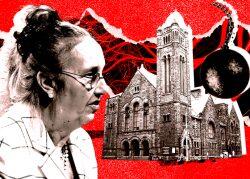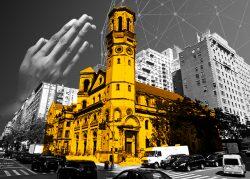Immanuel Lutheran Church’s two walk-up buildings are no stairways to heaven, but a group claiming to be its parent organization has launched a holy war over them.
The Upper East Side congregation owns a pair of five-story apartment buildings at 120 and 122 East 88th Street, modest assets with 20 units between them. They’re valuable not so much for what they are, but what they could be.
A short walk from the Guggenheim museum and Central Park, the properties could be nearly 30,000 square feet larger under their zoning, according to PropertyShark. The plots sit just outside the city’s landmarked Park Avenue historic district, making a teardown redevelopment less costly and cumbersome than if it were a few yards west.
Perhaps sensing that value, Immanuel began marketing the properties for sale in February. But a national Lutheran organization, the Metropolitan New York Synod of the Evangelical Lutheran Church in America, is challenging the sale.
In a distinctly New York real estate turn, the umbrella group didn’t just nail its grievances to a door — it filed a lawsuit.
The Synod alleges that Immanuel is violating church and state rules by engaging real estate brokers and advisers to market its properties. It argues that, as a religious corporation, Immanuel needs approval from either the New York attorney general or the New York Supreme Court to sell them.
Blasphemy, the church responded.
“This factually baseless complaint is a perverse attempt to amass a multi-million-dollar windfall, at the expense of Immanuel’s religious freedom,” said the church’s attorney, Mary Beth Maloney of Gibson Dunn. “We look forward to vindicating the fundamental constitutional rights of the church and its members.”
It’s not clear exactly how the Synod would reap a windfall, but it has gone to court a handful of times in recent years, usually seeking state approval to sell properties held by defunct congregations.
Read more


In the suit, it says that Immanuel cannot prove the terms of the sale, lease or exchange would be “fair and reasonable,” or that it would promote the interests of the church and its members. The group and its lawyer didn’t return requests for comment.
The Synod has a particularly litigious history with Immanuel: In March, it sued the congregation’s pastor, Gregory Fryer, contesting his attempt to sell his Upper East Side co-op.
The Synod cited the same statutes it is now using to stop Immanuel’s building sales, arguing that the pastor needed approval from the group and state authorities. It agreed in May to dismiss the case.
The Synod claims to cover 190 congregations, but Immanuel may not be one of them. In its pastor’s bio on the church website, he notes that his congregation is the city’s only member of the North American Lutheran Church, a different confederation of Lutheran churches from the Synod.
“God bless all the congregations of our city,” Fryer writes, “but we are different.”
